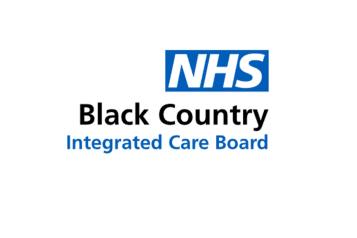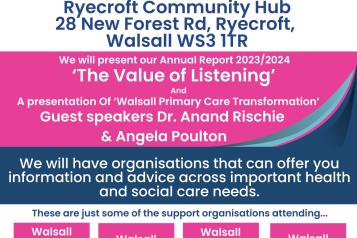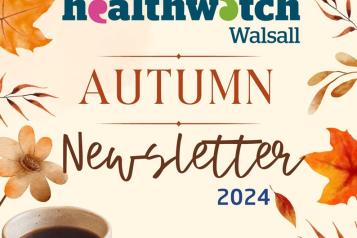
Winter vaccinations for people with COPD
This World Chronic Obstructive Pulmonary Disease (COPD) Day (Wednesday 20 November), people living in the Black Country who have COPD are being reminded of the importance of having a flu and COVID-19 vaccination this winter.
COPD is the name for a group of lung conditions that causes breathing difficulties in adults, including emphysema (damage to the air sac in the lungs) and chronic bronchitis (long-term inflammation of the airways).
Flu and COVID-19 can put extra strain on your lungs, which can have a significant effect on people with lung conditions such as COPD, making serious illness more likely.
There are more than 26,000 people in the Black Country who are living with COPD, and they are being encouraged to come forward for a flu and COVID-19 vaccine this winter.
Sally Roberts, Chief Nursing Officer for the NHS Black Country Integrated Care Board, said: “If you have a respiratory illness such as COPD, it’s really important that you look after yourself, especially in the winter when the weather gets colder and respiratory viruses start to circulate.
“It is important to top up your protection against these viruses, even if you have had a vaccine or been ill with flu or COVID-19 before, as immunity fades over time and these viruses change each year.
“Getting vaccinated is the best way to stay protected this winter, so I would encourage anyone eligible for a vaccine to come forward as soon as they can.”
As well as people with COPD, those eligible for a COVID-19 and flu vaccine includes:
• all adults aged 65 years and over
• people who live in a care home for older adults
• people aged 6 months to 64 years with health conditions that make them more
vulnerable
• frontline health and social care staff, including in care homes for older adults
pregnant women
Eligible people can book an appointment via the NHS website, on the NHS App or by calling 119. Calls to 119 are free from mobiles and landlines and the booking service provides support in 200 different languages. Those who have difficulties communicating or hearing or are a BSL user can use textphone 18001 or the NHS 119 British Sign Language (BSL) interpreter service.
COPD is the name for a group of lung conditions that causes breathing difficulties in adults, including emphysema (damage to the air sac in the lungs) and chronic bronchitis (long-term inflammation of the airways).
Flu and COVID-19 can put extra strain on your lungs, which can have a significant effect on people with lung conditions such as COPD, making serious illness more likely.
There are more than 26,000 people in the Black Country who are living with COPD, and they are being encouraged to come forward for a flu and COVID-19 vaccine this winter.
Sally Roberts, Chief Nursing Officer for the NHS Black Country Integrated Care Board, said: “If you have a respiratory illness such as COPD, it’s really important that you look after yourself, especially in the winter when the weather gets colder and respiratory viruses start to circulate.
“It is important to top up your protection against these viruses, even if you have had a vaccine or been ill with flu or COVID-19 before, as immunity fades over time and these viruses change each year.
“Getting vaccinated is the best way to stay protected this winter, so I would encourage anyone eligible for a vaccine to come forward as soon as they can.”
As well as people with COPD, those eligible for a COVID-19 and flu vaccine includes:
• all adults aged 65 years and over
• people who live in a care home for older adults
• people aged 6 months to 64 years with health conditions that make them more
vulnerable
• frontline health and social care staff, including in care homes for older adults
pregnant women
Eligible people can book an appointment via the NHS website, on the NHS App or by calling 119. Calls to 119 are free from mobiles and landlines and the booking service provides support in 200 different languages. Those who have difficulties communicating or hearing or are a BSL user can use textphone 18001 or the NHS 119 British Sign Language (BSL) interpreter service.
News



